How to Develop a Successful PR Strategy In 2021 (Guide)
The way to develop and launch a successful PR strategy has changed. In this guide, you’re going to learn how strategic PR can help your business grow in 2021. More specifically, Read More...
What is digital PR?
This is a question many business owners have.
Digital PR can help you improve your rankings, increase your online visibility and grow as a business.
The best part?
You can do it yourself, without having to hire a PR agency.
Here are some of the things we’ll cover in this guide:
Let’s get started.
Most people know PR stands for public relations—the act of deliberately pushing out information about your business or organization to the public.
Digital PR falls into that same practice but instead of traditional methods of sharing your information, digital PR focuses on your digital marketing strategies.
In a nutshell, digital PR helps you reach your target audience across several different platforms and build relationships with people and companies in your industry.
It can mean featuring your business on popular websites, podcasts and social media accounts with which these people and companies regularly interact.
For example, in 2019, Tim Soulo, Chief Marketing Officer at Ahrefs, did 20+ podcast interviews in less than four months.
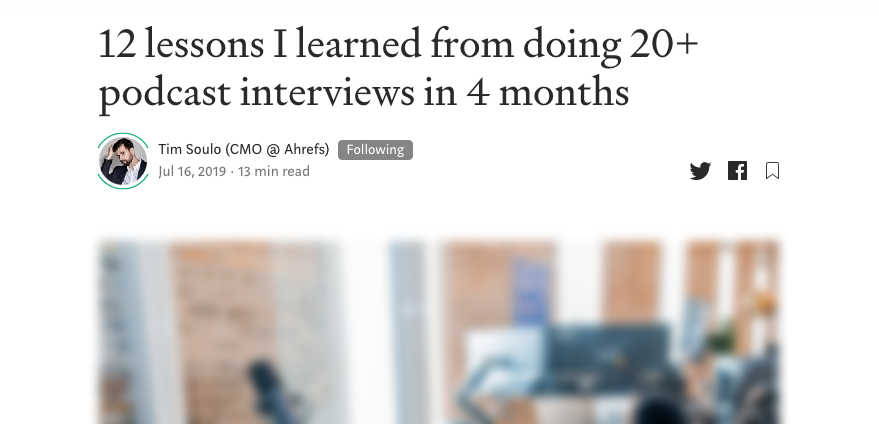

Of course, not all emails went well for Tim, since some of the responses he got weren’t as positive as he might have expected.
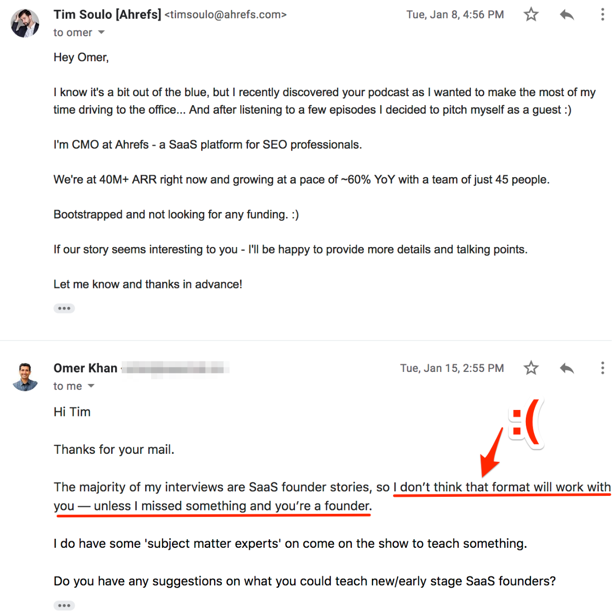

However, the fact that Tim reached out to those people 1-to-1 with an interesting pitch shows us two things:
Simply put, forming relationships with other people isn’t easy.
Moreover, the fact that we’re oversaturated with messages and pitches of all kinds nowadays makes it even harder.
So, if Tim, a CMO of a million dollar company (Ahrefs) got some resistance in his digital PR campaign—that had as a goal to get him as a guest on as many podcasts as possible—then you can imagine just how difficult it must be for you and me to do the same thing.
However, there are many people who really nail it when it comes to digital PR and forming relationships with other (usually influential) people online.
Just a few weeks ago, we had one of Respona’s users get a mention and link from TechCrunch.


As you can imagine, getting a brand mention on a website with 9.3M organic visitors on a monthly basis—according to Ahrefs—isn’t something that comes easy.
This means that digital PR works, but only if you do it right.
So, we could say that digital PR is a way to…
Of course, digital PR has other, indirect benefits as well that we’ll cover later on in this guide.
Before diving into the benefits that it can have for your business though, let’s discuss the difference between digital and traditional PR.
There are many similarities between the two terms because digital PR is an evolved form of traditional PR.
How did it all start?
Let me take you back to the 1920s, when a young man initiated what people would later call “public relations”.
Edward Bernays is one of the most influential names in the PR industry.
He gained special attention for his early efforts to define and theorize the field of public relations and was even called “the father of PR” in his obituary.
(He was also Sigmund Freud’s nephew, which played a role in his understanding of human psychology.)
Some of his most notable PR campaigns were “Torches of Freedom”, which promoted female smoking, and his work with The United Fruit Company, which was connected to the overthrow of the democratically elected Guatemalan government (orchestrated by the CIA).
Through these historic campaigns, Bernays was able to influence millions of people across several different countries and establish the foundation of public relations.
Traditional PR revolves around the relationships between publicists and journalists.
When traditional PR strategies first came around, publicists would have to put in a lot of work to network with journalists over the phone or through business dinners.
They put forth this effort in the hopes of getting their clients featured in newspapers or print publications.
As the readership of traditional print products like newspapers declined and became less impactful, this increased the influence that online publications had.
With the rise of the internet, Bernay’s work and legacy moved from traditional PR roles into the digital era, and his mark on PR has been solidified by the generations of public relations practitioners that came after him.
This is why, according to Google Trends, the interest for digital PR has been growing steadily since 2004.
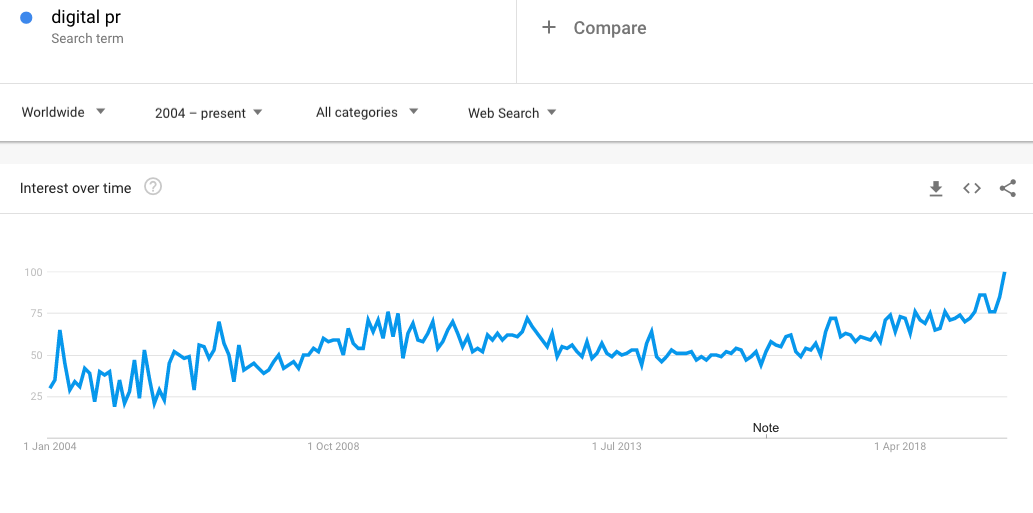

With this digital transformation, digital PR now focuses on online publications and improving your brand’s awareness within digital content rather than print products.
While traditional PR focuses on things like getting a person/product featured on a TV show for a few seconds or even minutes, digital PR focuses on getting a person or company featured in an article, podcast, digital summit or similar.
Thus, as you can see, the medium has changed but the purpose behind those actions remain the same.
It can be highly beneficial to get featured in a major publications like TechCrunch, as we mentioned earlier.
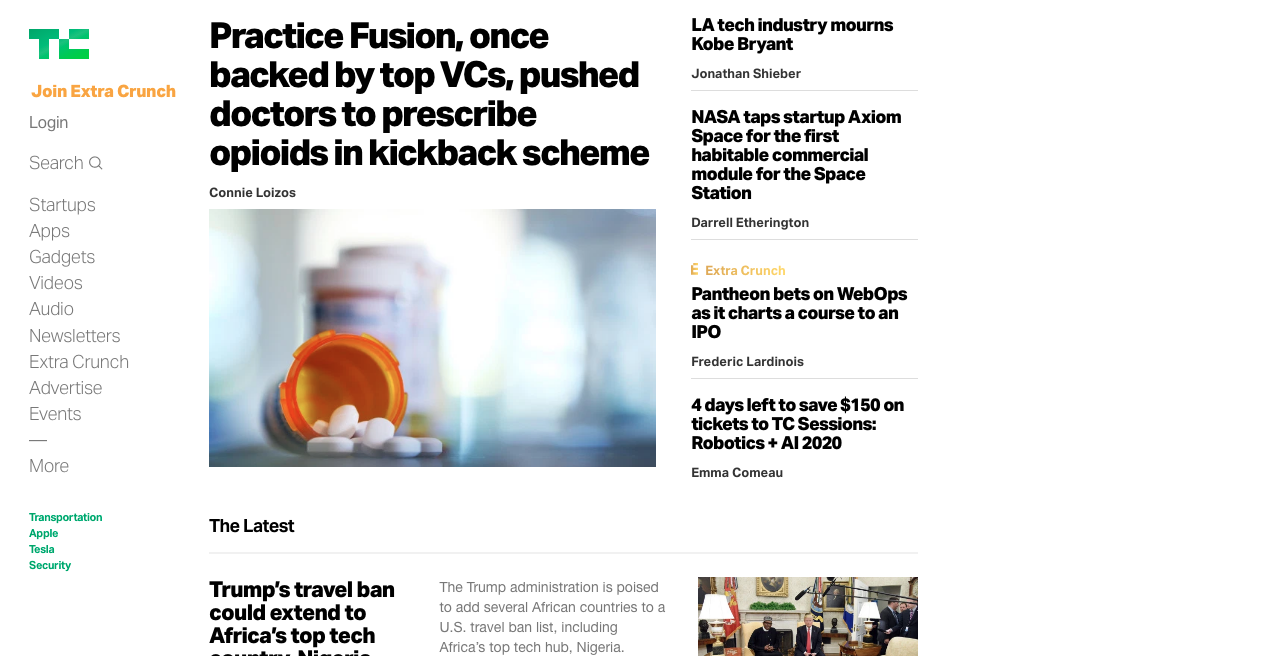

Some of the benefits of large publication media coverage are:
Of course, nowadays, there are digital PR agencies that can help you with all these things.
However, in most cases, digital PR agencies charge a lot of money, which means you should be learning how to build those relationships and get more exposure for your business by yourself.
Now that you know the difference between digital and traditional PR, let’s examine even more benefits that come from digital PR.
There are many ways digital PR can benefit your business.
One of the most important things to do is set goals for your digital PR campaign so you can analyze its performance later on.
Let’s break down some of the main benefits of digital PR for your business:
Search engines like Google place importance on several different areas of your website.
According to this survey by Sparktoro, 1,584 SEO professionals believe these are some of the most heavily-weighted ranking factors in Google’s organic search engine:
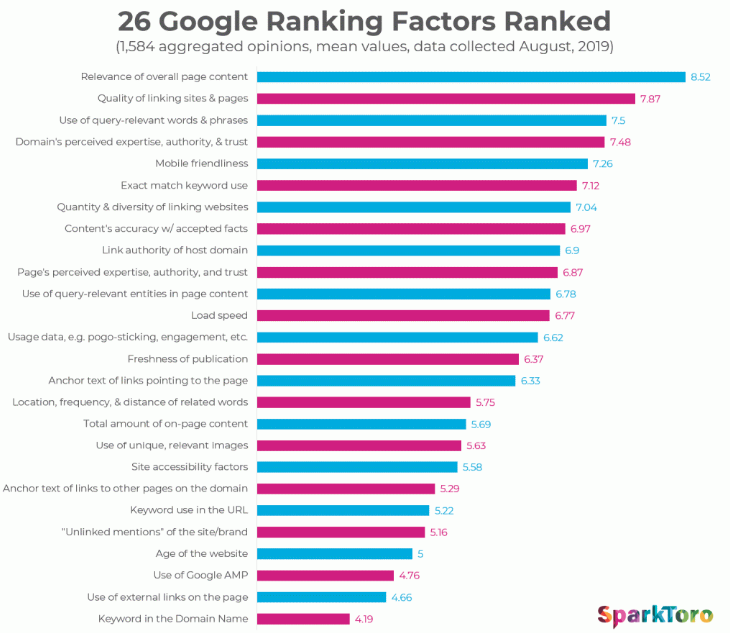

So, it is evident that most SEO professionals believe that backlinks matter when it comes to rankings.
One of the most obvious benefits of digital PR is link acquisition.
Think about it:
When you partner up with popular websites or individuals, they will most likely link back to your site.
This will help you boost your Domain Authority (or Domain Ranking, according to Ahrefs) and get higher rankings.
Of course, there are many other factors involved—such as having high-quality content on your website—but that applies to almost all cases.
Building links for your website—as a by-product of building relationships online—will help you improve your search visibility and grow your organic traffic.
According to a study on 1 billion web pages by Ahrefs, 90.63% of content online doesn’t get any traffic.
That’s pretty disappointing, right?
One of the reasons why that happens—according to the study—is because most of the content online doesn’t get any links.
In fact, Ahrefs found out that 66.31% of all pages online don’t get any links whatsoever.
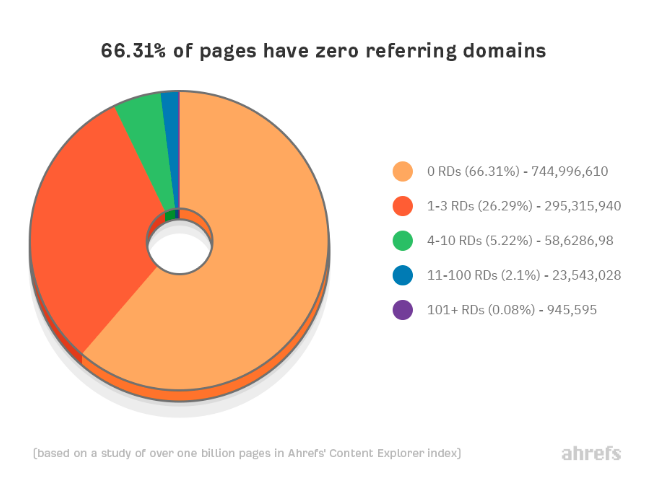

According to the same study, there is a high correlation between the number of links a page gets and the amount of search traffic it receives.
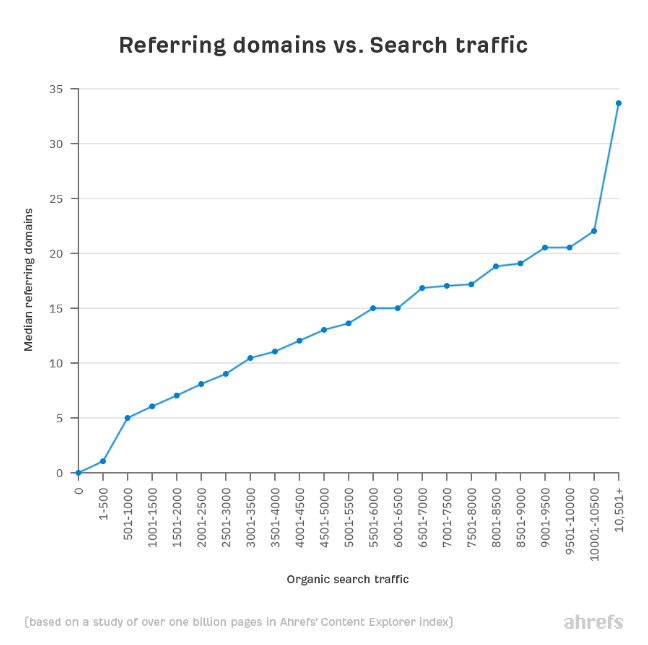

This means that as the number of referring domains grows, so does the organic visibility and search traffic that the company’s website receives.
Even though that’s a correlation study—and, correlation doesn’t prove causation—we can clearly see the positive impact of links on organic traffic.
Now, let’s consider this:
The total yearly searches on Google has increased every year since it was founded in 1998, and there are over 3.5 billions searches on any given day.
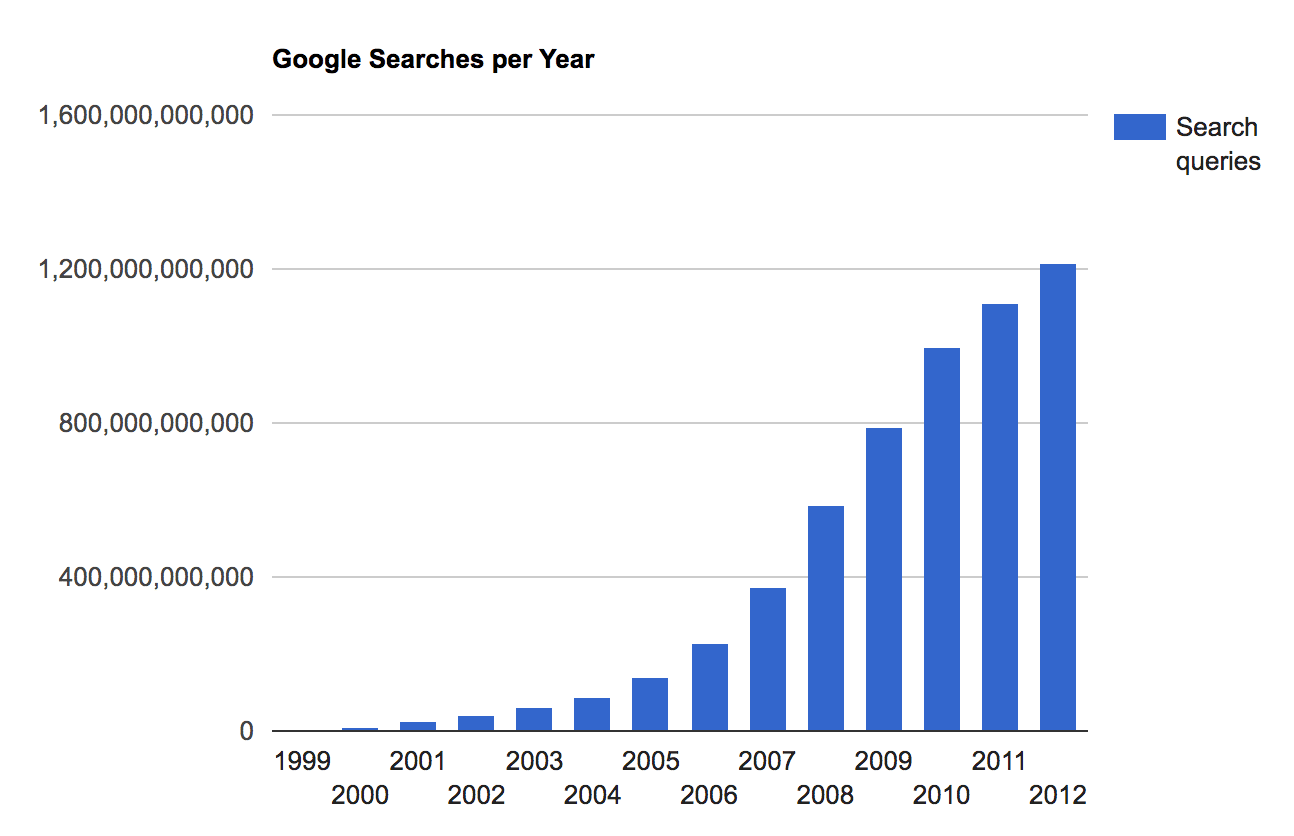

This means that Google is growing steadily.
If your website is one of the first things to show up on the search engine, it can translate to thousands of new people coming to your business.
Good-quality links and original content creation will increase your search rankings and help you gain more exposure online.
Note: For even more information on SEO tactics, check out our articles on SEO.
This is of course one of the most important benefits of digital PR for businesses.
Let’s move on to the next one.
Many of the top bloggers or influencers are well connected to others in their industry.
Of course, they had to do a lot of hard work to build that network and credibility.
If you can connect with them and utilize their community, it takes some of the work off your plate.
Digital PR is all about building relationships.
Making connections with other bloggers or influencers in your niche allows you to:
But how do you find these bloggers or influencers?
Respona has the tools to help you find influential authors, personalize the emails you send to them and analyze the pitch quality of those emails.
Through Respona’s content-based campaigns, you can find relevant content in a simple search engine format.
You can search for a keyword, topic or domain and then filter your results by market, freshness or source.


Respona even assigns each content piece a score to indicate the quality of the average prospect based on search ranking, number of backlinks and domain authority.


Tip: Check out our guide on how to get your blog noticed to learn how to approach and connect with other bloggers and influencers in your niche.
Using a tool like Respona, you can find and connect with popular bloggers and influencers.
This way, you can get in front of new audiences and raise awareness for your business.
Let’s move on to the next benefit of digital PR for your business.
This is not as simple as just asking a company to include your link on a client’s website.
You have to be able to pitch the value that their audience will gain by incorporating you into their brand.
This is one of the most common misconceptions when it comes to content marketing—that most content pieces pitched have no value whatsoever.
Let’s take Visme—a free infographic software and presentation maker—as an example.
Visme is a website that gets more than 1.1M organic visits per month according to Ahrefs.


If you check the “Best by links” report on Ahrefs, you’ll notice that some of Visme’s top pages have hundreds of links pointing back to them.
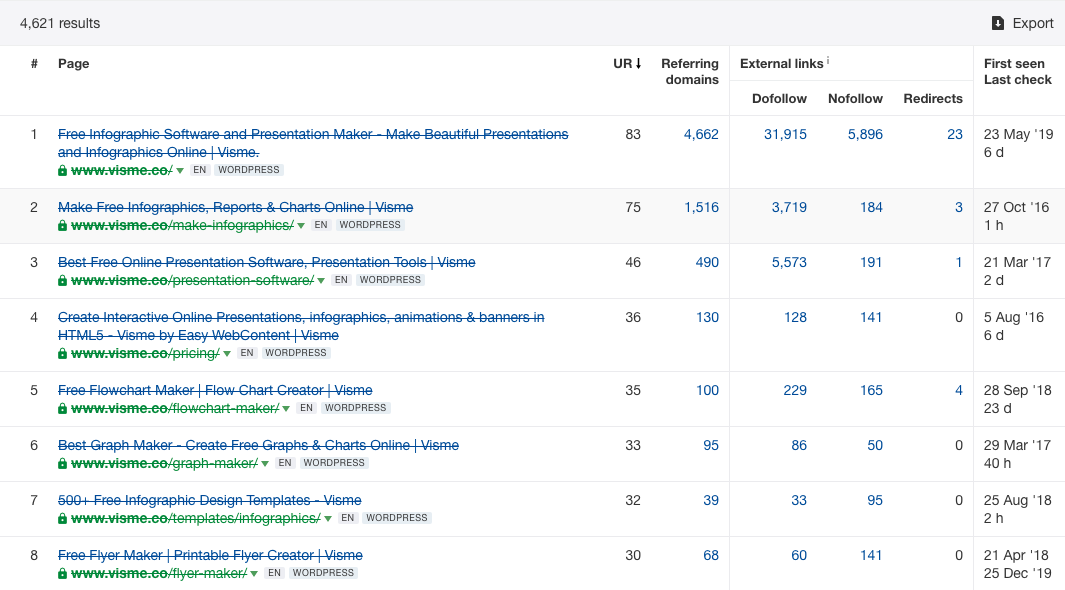

One of those pages, “infographic templates”, has links from 39 different domains.
Visit, and you’ll see that this is a well-designed page that has actual value for the visitor.


So, if hypothetically you were to promote this page, your job would be quite easy because this is a resource that is actually worth linking back to.
The point I’m trying to make here is that you can’t expect link building to work if you don’t have high-quality content to back it up.
You have to provide valuable resources and a creative or informative piece of content that provides a legitimate reason for the journalist to link back to it.
Take into consideration the following when trying to improve your backlink profile:
You can use tools like Ahref’s site explorer to make sure you’re reaching out to valuable sites that will build a quality backlink profile.
Simply enter the domain of the site you are interested in and you can instantly see Ahref’s rank, the number of backlinks and referring domains, total number of organic keywords, monthly search traffic and the value of that traffic.
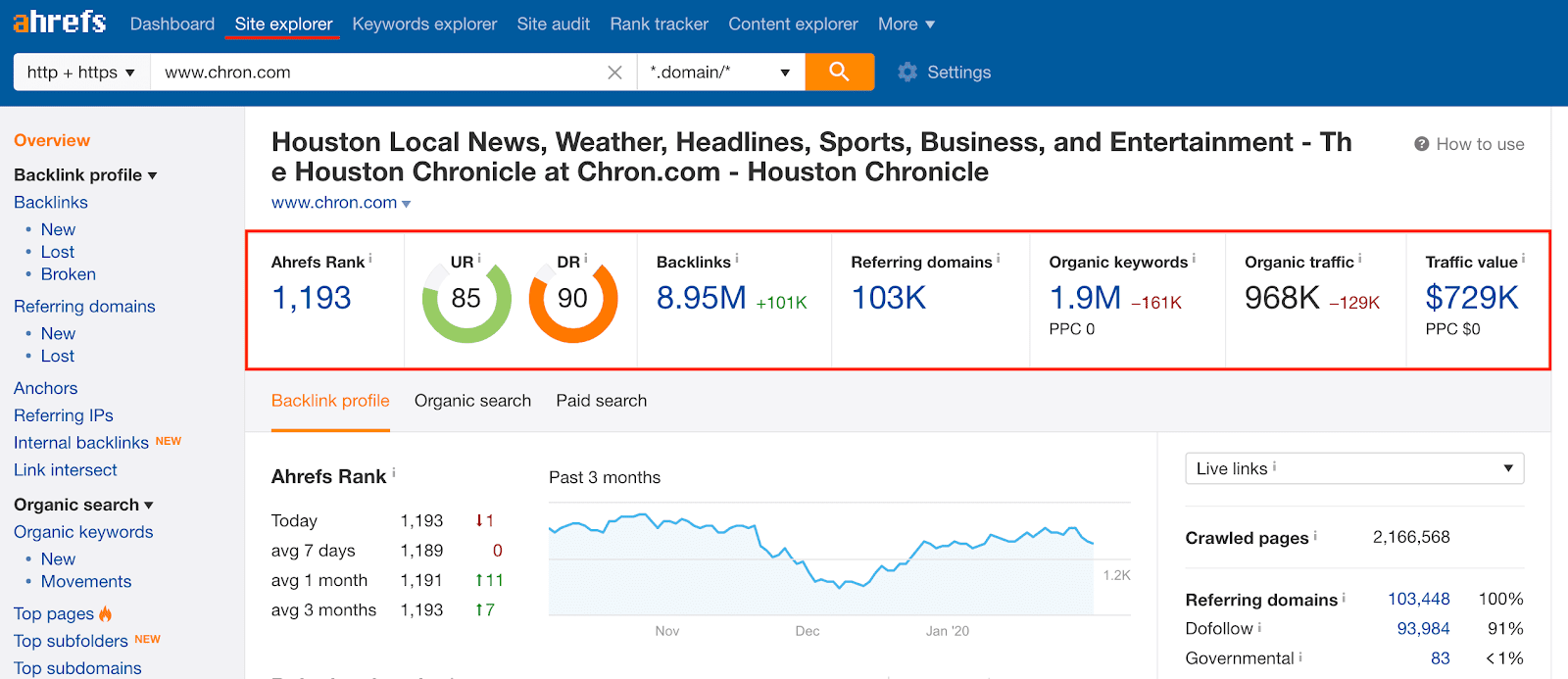

Tip: Try to avoid using solely branded anchor texts, as that may raise a red flag in the eyes of Google.
Of course, the way you’re going to evaluate those opportunities varies based on your goals.
If, for example, you’re interested solely in increasing your domain authority, then you should go for as many links with high authority as you can.
On the other hand, if you’re also interested in acquiring traffic from those links, then the traffic that the websites/pages you’re interested in getting a link from will also affect your decision.
In any case, be very specific as to what you want to achieve, since link building is a benefit with many sub-benefits of its own.
Let’s continue exploring the benefits of digital PR and see how it can help you improve brand identity campaigns for your business.
Raising brand awareness for your business is not something that will happen overnight.
There are no quick advertisement schemes or marketing campaigns that make this happen.
Instead, it’s something that is built over time and through the relationships you foster.
Drift is a great example of how to showcase and highlight the value of your brand and raise awareness for your product.
They showcase the product by placing easy-to-digest screenshots on the page with reassuring messages like “Absolutely no coding required!”, emphasizing how this can be completed in seconds.
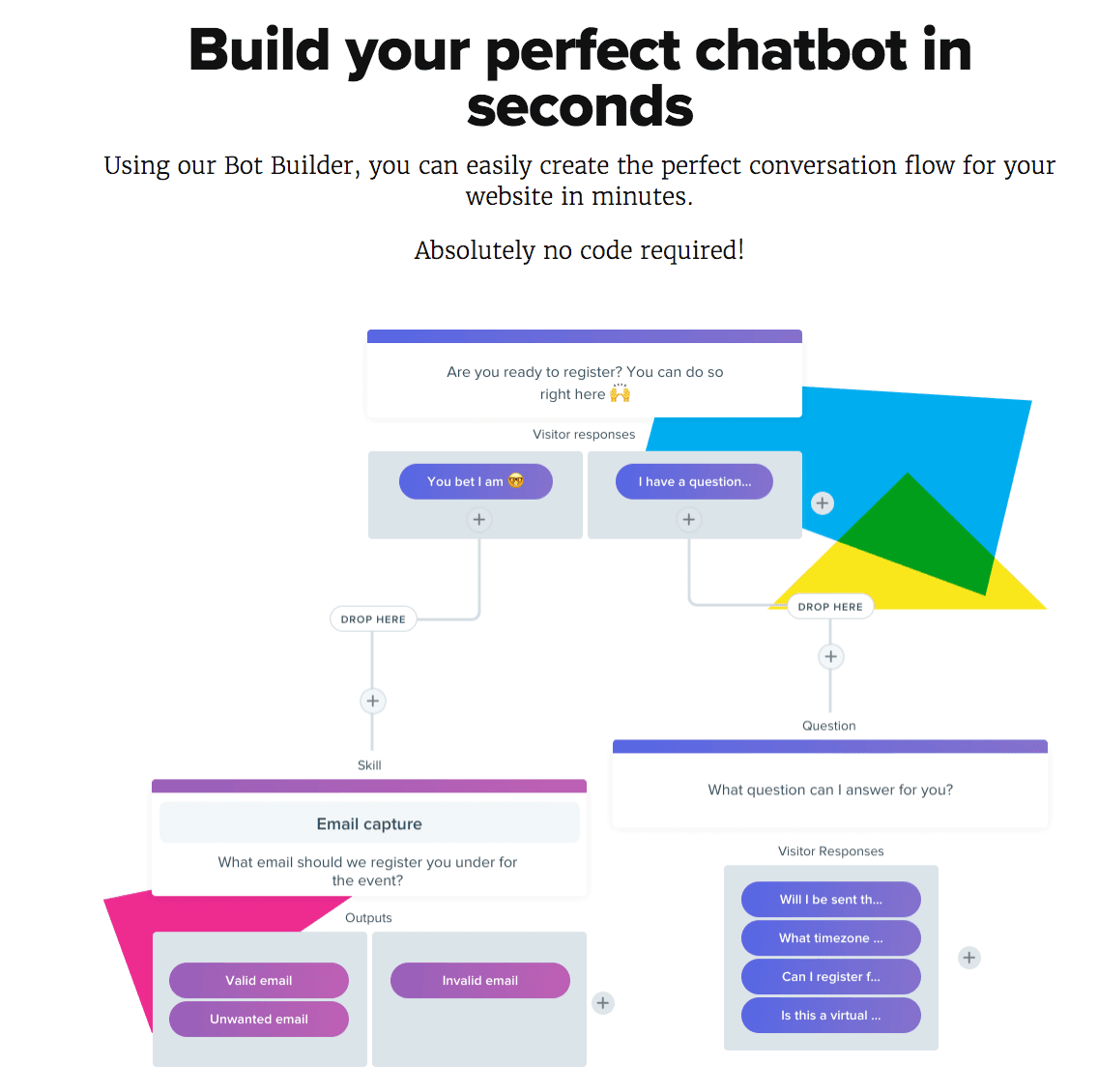

They also do a great job of highlighting the value of their brand by subtly placing logos of other major companies they’ve worked with below their main call to action.
This doesn’t distract the customer from their journey, but shows they are a reputable brand.
As you can imagine, all this didn’t happen overnight.
Drift invested heavily into building relationships and getting the message about “conversational marketing” out there.
How?
Other than traditional marketing strategies, Drift has also used digital PR as a way to raise awareness about its product and the new wave that they called “conversational marketing”.
Drift’s Co-founder and CEO is serial entrepreneur David Cancel.
Here’s what I got when I searched for “david cancel + interview” on Google:
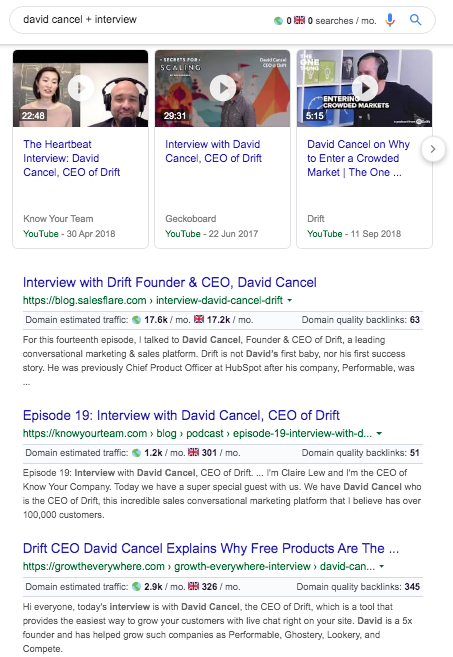

From podcast appearances on Eric Siu’s Growth Everywhere show to TechCrunch features and NY Times interviews, Drift’s CEO promotes the company he has co-founded and tries to raise awareness for Drift.
As you can imagine, digital PR plays a huge role here.
People nowadays rely heavily on others’ opinions, which is why these interviews can make it or break it for a company.
When you get to hear about a product from a podcast or show you like, you’re more likely to be positively biased toward that product.
Thus, you can now understand why digital PR can also help in building awareness for your product or service.
And, you can do that with Respona.
First, you need to create a new campaign.
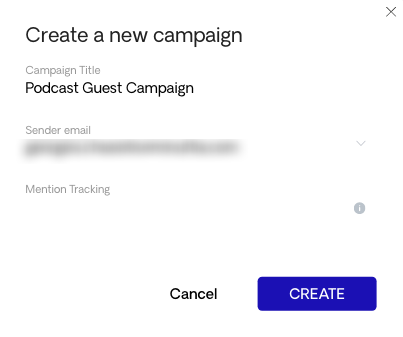

Then, you need to choose “Content Based” as your campaign type.
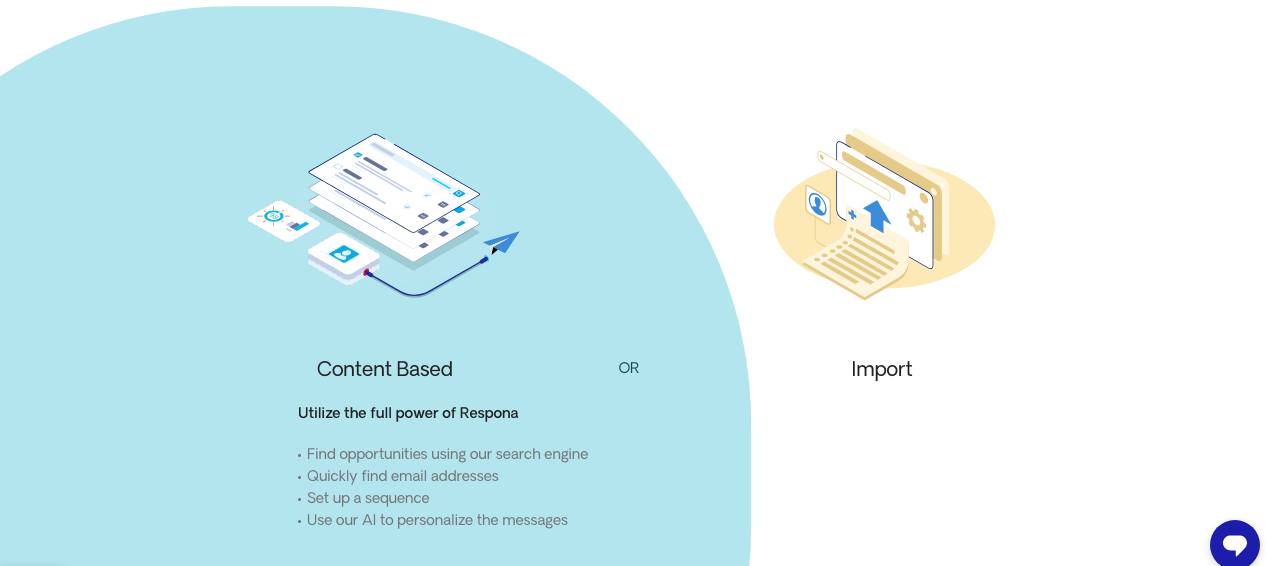

Next, you need to think of an influencer in your niche that podcast hosts invite often as a guest.
In our example, we’ll assume that you’re into SEO and thus looking for podcasts related to SEO.
And, for the sake of the example, the SEO professional we’re going to choose is Brian Dean, the founder of Backlinko.
So, in Respona’s search engine, you have to insert the following search operator:


Note: Make sure to choose “Web Search” as your “Source” and “All Times” for “Freshness”.
Here’s what we get next:
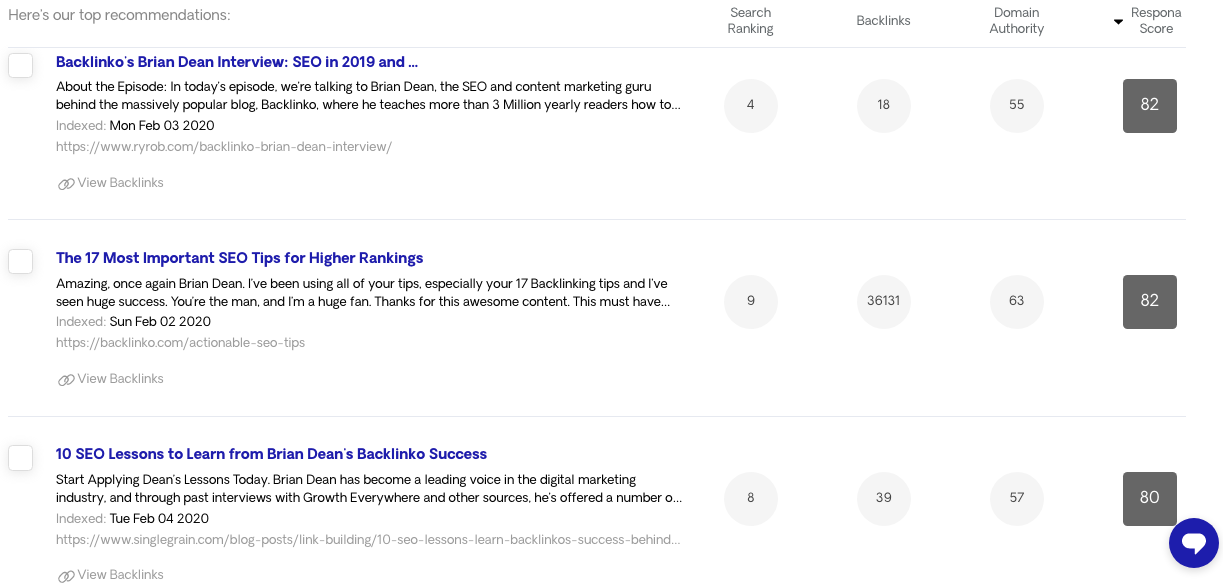

Even though the second result comes from Backlinko.com, most of the other results recommended by Respona come from actual interviews that Brian Dean has given.
Those can (potentially) be opportunities for us.
After choosing the ones that we consider to be more relevant and with higher potential, we can choose “Next Step”.
This is what you’ll see next:
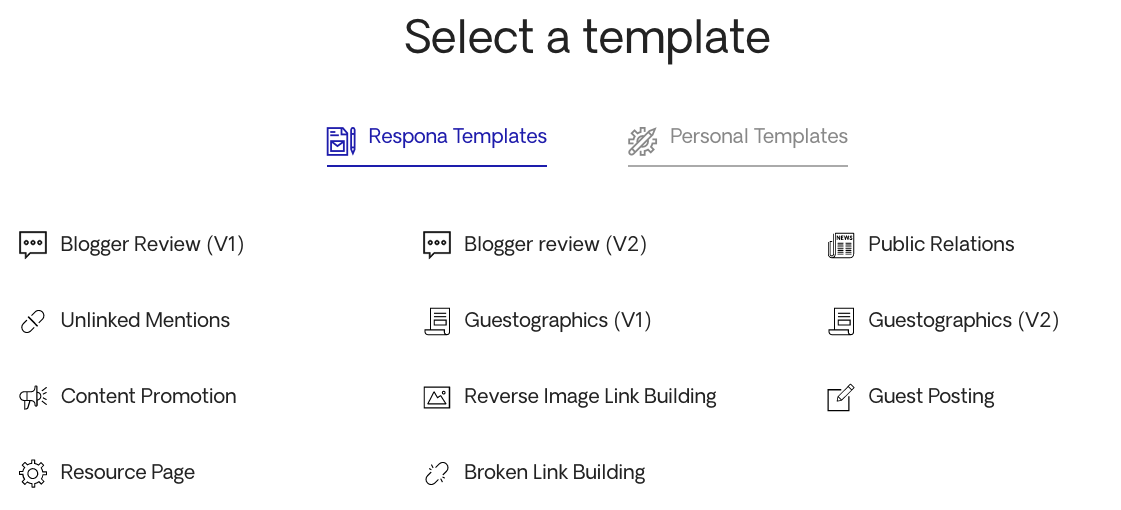

Even though Respona is offering a variety of ready-to-use templates, for our example, we’re going to create a new message and use it as a template for our digital PR campaign.
Once we click on “Personal Templates”, we should then click on “Create New”.


Then, we just need to click on “Create New Step”.


Here’s what the editor looks like:
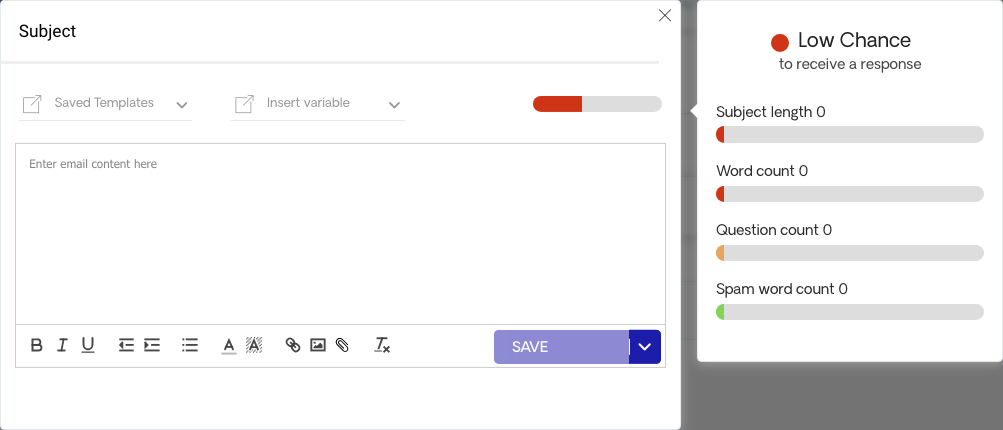

What’s cool about this editor is the fact that it auto-grades your email pitch based on several grading criteria such as spam, word count and subject length.
The email pitch we’ll create will be something really simple and to the point.
First, let’s craft a good subject line.


As you can see, our subject line isn’t spammy and describes what’s going to follow after the recipient clicks on our email.
After all, who wouldn’t want to know a topic they’ve missed to mention on their podcast?
The body text has to be equally good—remember that podcast hosts are people who receive hundreds of emails every week.
This means that they can spot spam email when they look at one.
To stand out, you have to be relevant and show relevance right away.
Here’s how our message will look like:


Subject
Hey {first_name},
I’ve been listening to your podcast for a while now. (Really enjoyed the interview w/ Brian Dean.)
Even though you’ve covered a lot of topics, from [A] to [B] and [C], you haven’t yet made an episode discussing [D].
I’m [Name] and I’m [Position] at [Company].
We’re helping companies with [Specialization] for [x] years and thus, I have a couple of things I could say about [D].
To give you an idea what we could talk about:
If this sounds interesting to you, I’d be more than happy to provide more details and talking points.
What do you think? Let me know.
Thanks,
Note: Pieces of text within {} are called variables and can be used to personalize your email pitches.
According to Respona’s editor, this email has high chances of getting a response.
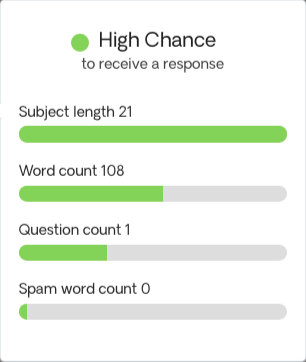

From there, it’s only a matter of assigning the right emails to your contacts (prospects) and managing the conversations.
Digital PR is a great way to raise awareness for your product/service and getting featured on podcasts is one of the ways you can achieve that.
Just try to give people reasons why they need to have you as a guest or talk about you in their show.
Domain Authority (DA) is a search engine ranking score that Moz uses to predict a website’s ability to rank on search engine results pages.
The score ranges from 1 to 100, and the higher your score, the better your website will rank.


Note: The above screenshot shows MozBar from Moz. Ahrefs has an equivalent to MOZ’s DA called Domain Ranking (DR).
This score is calculated using multiple factors, such as the number of links pointing to your site and linking root domains.
(For Ahrefs, DR is calculated solely by the number of links pointing back to a certain domain.)
Building domain authority as a business is about having the right stories told in a clear way, at the perfect time, to the right people.
This is where digital PR can play a significant role.
If a media outlet mentions your article or links to your website, this link passes on link equity and increases your domain authority.
As you create valuable content and promote it to your target audience, more people will naturally link back to your site.
This will increase your overall domain authority and allow you to rank for even more competitive terms.
This process can happen passively, but in most cases there has to be an active promotion of your resources as well.
You can acquire high-quality backlinks without actively promoting your content, but to really stand out, you have to employ digital PR and link building tactics.
When we look further into the analytics, the first five organic results account for 67.6% of all the clicks. Most customers don’t make it to page 2-10.
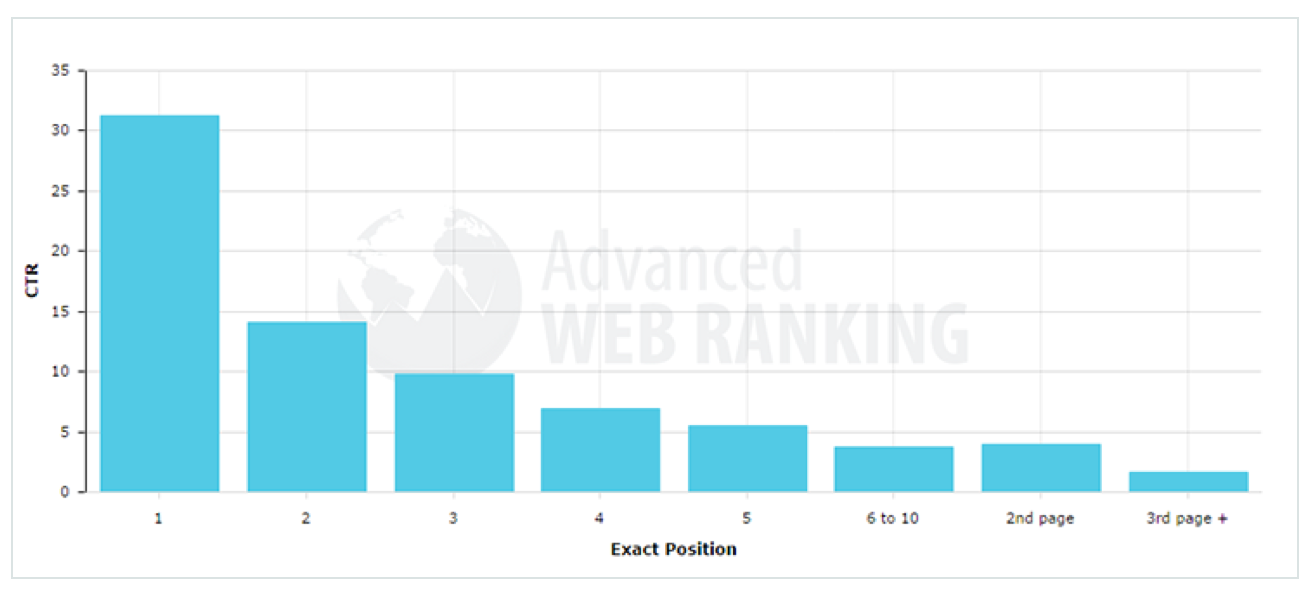

With more than two-thirds of the clicks going to those top 5 spots, you can see how competitive the SERPs are.
Increasing your domain authority is one important way of being more competitive yourself, and one of the best ways to achieve this is through digital PR.
As we mentioned earlier, more links to your website can help you increase your authority.
It also increases the likelihood that your domain will rank higher, which gives you more exposure to new customers.
If the page that links back to you already gets traffic, chances are you’ll get some referral traffic from that website as well.
Let’s take the following blog post by ryrob.com as an example.


This is a post with more than 57K organic visits per month according to Ahrefs.
If you could get your website featured on that post, chances are you’d get some referral traffic as well.
Of course, the question is, how can you get featured in that post?
For that, you would need to have something highly valuable and relevant to pitch and a great and creative way to pitch it.
The more you can build relationships with different journalists, bloggers and influencers in your niche, the more you increase the chances of getting referral traffic from those websites.
If a press release that you put out gets picked up by several news outlets, your referral traffic will be coming from all over.
If a popular podcaster mentions your social media handles, depending on their traffic, this could greatly increase who sees your brand.
If a popular journalist mentions you on a blog post that gets traffic from various sources, then chances are you’re going to get some of that traffic as well.
According to Podcasts Insights, as of December 2019, there were over 30 million podcast episodes available to stream.
Most podcasts accept sponsors to advertise to their audience, for a price of course.
They can give you a backlink, pre-roll or post-roll spot around their regular scheduled programs, and that single link from a podcast episode can drive traffic back to your website.
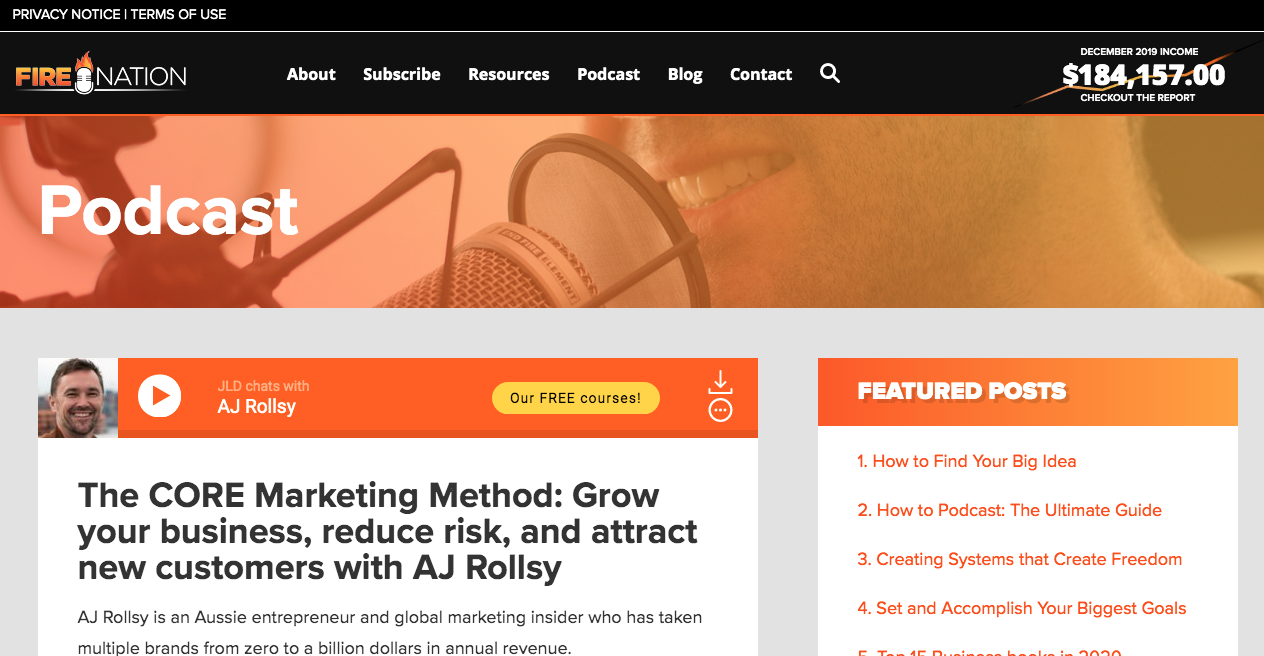

Author’s Tip: If you’re a guest on a podcast, make sure to create a dedicated landing page for the podcast’s listeners. For example, if I was a guest on Entrepreneurs on Fire, I’d create a landing page respona.com/fire with a special offer for the people who listen to the episode.
All these relationships are built—in most cases—through digital PR.
So, you have every reason to start using it for your own business.
This might be an obvious one, but one of the most beneficial things that can happen as a result of a successful digital PR campaign is seeing your online presence grow as you reach new audiences.
Even if people don’t use your service or product right away, it’s great to maintain your familiarity as a brand and establish trust so that they can consider you in the future.
Just think about it.
Someone is reading an article on a popular publication and they see your brand name, just like Respona’s mention on OpenView blog:


Over time, when readers of that blog post need a pr outreach tool for their business, they will remember our tool and be more comfortable because there’s already some familiarity there.
Once you can get customers to associate you as a brand that informs, educates and adds value, you can start building the relationship by engaging your audience.
After you’ve engaged with them, reinforce the sense of a one-on-one relationship that gives your organization a human touch to which consumers respond positively.
So, you now know what digital PR is and what main benefits it can have for your business.
Let’s close this article with some final thoughts.
Digital PR can help your business grow.
As you can see, there are many direct and indirect effects when it comes to digital PR.
It can help you…
However, before you start working on a digital PR campaign, it’s important that you clearly define your marketing objectives and set clear goals.
As mentioned previously, even though there are many trustworthy PR services, most of them cost a lot of money.
This is why it’s always better to learn how to do it yourself.
Now I’d like to hear from you:
Have you ever run a digital PR campaign for your business? If so, what were the results? If not, what’s keeping you from doing it?
Let me know by leaving a comment below.
No spam, no BS, unsubscribe at any time.